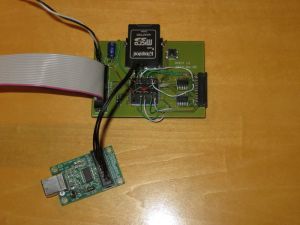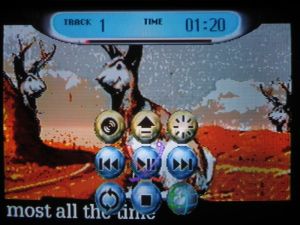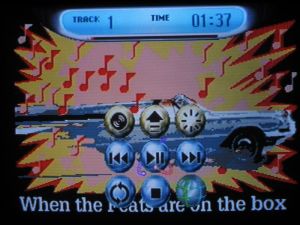After some initial issues Rhea has been upgraded to V1.5 and works pretty stable now. As in boots everything I throw at it. Which brings me to subject at hand: Many of the existing images of Saturn CD-ROMs are pretty poor.
I’m going to have to put a line somewhere because I don’t want users to complain about the device not working properly when the problem is with the dump itself. Only certain formats will be supported, and as always I urge you to make your own dumps. It’s not that complicated, Saturn discs can be read on a normal PC drive – no special hardware needed.
Supported formats:
CDI – Preferred. Needs to be either RAW or (optional) RAW+SUB format. CDIs include pregaps (index 0 parts of the tracks) by default which is good.
MDS/MDF – I’ve just added preliminary support for this format. The only few images I have are in RAW+SUB format, but just RAW should be fine as well.
BIN – Only for single track images, needs RAW sectors. Since I haven’t seen a single track game yet I don’t think this one will be of much use – perhaps for homebrew.
I’m looking at CCD/IMG format now, I might add some limited support for that as well since it’s popular. Please note that having the dump in supported format doesn’t yet mean it will definitelly work – the file format is one thing, and the quality of what’s actually inside is another.
Not supported:
CUE – Anything that depends on CUE will not work. I’m not even talking about ISO+MP3 tracks, which are the worst, but the whole format in general. There are many ad-hoc extensions to the so-called standard CUE, and the tracks can be multiple files, single file, RAW or MODE1, even compressed via MP3 or FLAC, or converted to WAVE instead of raw audio data. Single file “pregaps” are just zero-filled space even for data tracks. And to add insult to injury the MSF address of each track is always +2 seconds, pregap or not, because it was more funny this way.
Some CUE based dumps can be converted to a more sane format and will work. I’ve tested it by mounting the image in Daemon Tools Lite and re-ripping it with DiscJuggler to CDI. For some reason DJ doesn’t see WinCDEmu virtual drives, so that’s why DT. That’s just one possible option, and obviously if the dump was bad to begin with this will not produce a working image. But might be worth a try if your disc is damaged and unreadable and CUE is all you’ve got.
It’s always best to stick to properly made dumps, even if these need to be converted you know the data is good. I can’t guarantee correct operation otherwise.
Last thing – turns out the 21-pin Saturn drives come in at least 3 versions, with some rather important differences between them. While the idea is to be able to support all models, so far Rhea can only emulate 20-pin drives. That raises 2 questions:
Would any of you be interested in buying an earlier, 20-pin only model, or do you want to wait for a more final version. This will still take weeks at best mind you, assuming I can make a universal emulator at all.
There’s going to be some soldering involved – at least to connect 5V power supply (so 2 wires) since every drive has a different connector for that and it’s not economical to add all of these. Not to mention you’d be limited by the length of original wires. With the differences between 20- and 21-pin drives I will also need some form of easy configuration (auto-detection not really feasible), I was thinking solder pads that can be connected (or left open) via a small solder ball. Easy, but somewhat permanent. Proper jumpers are another option but this needs more space, PCB height, and I think would only be useful for people who have just 1 Rhea but several different Saturns. A hindrace and potential source of problems if the jumpers loose good contact due to age for everyone else.
What do you think?


